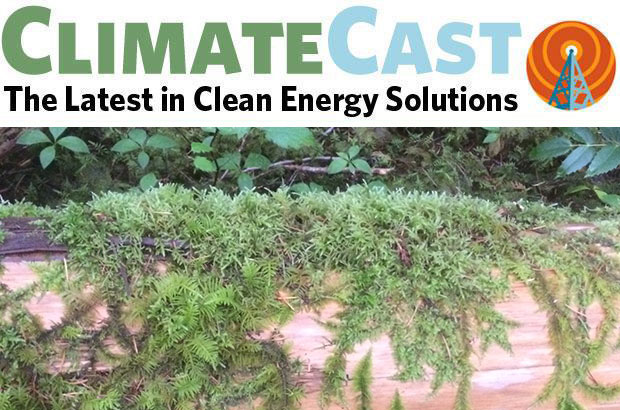Happy Thanksgiving! We hope that you find plentiful reasons, as we do, to experience and express gratitude among your families, colleagues, and communities.
With major wins in two states, the Northwest leads (mostly) on climate
Election 2024 will not be remembered for its good news for climate and clean energy advocates, at least not at the national level. But Washington voters told a different story by defeating an initiative that aimed to repeal the Climate Commitment Act, with a decisive 62% of the vote. Boasting the biggest and most diverse coalition ever assembled in Washington, advocates mobilized in strength to oppose I-2117, and said that their victory will have national significance: “it’s possible to run a campaign on the belief that we should have clean air, clean water and innovative climate action, and win big.” This year’s final carbon allowance auction under the Climate Commitment Act will take place on December 8.
Cap-and-invest wasn’t the only climate policy up for a vote in Washington. Initative 2066, which blocks certain efforts to plan for clean energy transition, narrowly passed by just three percentage points. As part of a handful of conservative initiatives placed on Washington ballots, the Yes on 2066 campaign flooded airwaves with misinformation and fearmongering obscuring the likelihood that if enacted, the initiative would mean higher energy bills in future years. I-2066 addresses a number of different electrification and gas laws from different agencies and will be put to a constitutional test with a lawsuit in the coming months. State agencies are reportedly reluctant to undo current regulations with a lawsuit pending.
In Oregon, the Environmental Quality Commission (EQC) has unanimously reinstated the state’s landmark climate policy, the Climate Protection Program. This program requires a reduction of oil and gas pollution by 90% by 2050, and will invest in pollution-reducing projects in frontline communities across the state. The policy had been in limbo for nearly a year due to a fossil fuel industry lawsuit which had convinced a court to invalidate the cornerstone program on technical grounds. The EQC decision last week, and the support of Governor Kotek, is a triumphant win for a state that weathered enormous challenges to pass a cap-and-invest program, including years of Republican walkouts shutting down the state legislature.
The reinstatement of the CPP “holds polluters accountable while uplifting community-led solutions,” said Xitlali Torres with environmental justice organization Verde, part of a broad and diverse coalition that came together to defend climate progress. “It directly addresses the harmful pollution that burdens low-income communities of color while building cleaner air, safer homes, and a livable future for all.”
The Northwest wasn’t the only place in the country with climate up for a vote. While familiar actors on climate and clean energy like California and Hawaii passed measures focused on building climate resiliency funds, there were surprises in states such as Louisiana where over 73% of voters passed a constitutional amendment that requires any state renewable energy revenue to be deposited into the state’s Coastal Protection and Restoration Fund. Louisiana companies are in early stages of building offshore wind energy.
Overrun by fossil fuel reps, Azerbaijan COP summit whimpers to a conclusion
One key hope for the recent COP29 international climate summit in Azerbaijan was to increase the financial support wealthy countries provide to assist developing nations with climate mitigation, clean energy development, and “loss and damage” compensation for irreversible climate impacts such as extreme weather and rising sea levels. The previous annual climate finance target of $1 billion has been widely criticized as insufficient. However, negotiations remain stalled through much of the two week summit. While a majority of countries passed a deal raising the target to $300 billion y in the final hours of the conference, it was over objections from the global south, whose delegates had estimated the annual need at more than $1.3 trillion. An Indian delegate described the agreed-upon increase as “an optical illusion… that will not address the enormity of the challenge we all face.”
This latest COP had less of the hopeful energy that has attended higher-profile iterations of the conference. Fossil fuel lobbyists attending the climate summit numbered more than 1700—more than most national delegations—and oil producing nations like Saudi Arabia were successful in derailing any new or renewed commitments to the most basic climate goal of transitioning away from fossil fuel pollution. With the host nation’s president telling delegates that fossil fuels are “a gift from God,” and with the US about to dial back or shut down its own climate leadership, the future of the COP process and of international climate progress looks clouded.
One thing you can do
Since Elon Musk engineered his takeover of Twitter, users of the platform have been justifiably skeptical of how his chaotic leadership would affect users’ experience. Now many have become tired of the significant rise in hate-filled messages, as well as algorithm changes that seem to privilege right-wing content, including Musk’s own posts.
In the past couple of months, Musk (and Twitter/X) have veered more brazenly to the right. Users are ditching the platform for other social media locales, especially BlueSky, which is adding users at a staggering rate. The Twitter-like BlueSky is part of the “Fediverse”—meaning control of usage policy is distributed instead of belonging to a single untrustworthy owner. Setting up an account at BlueSky is simple, and users have access to powerful features including affinity-based “starter packs” allowing one to easily follow many related accounts at once.
Here’s how to get started on BlueSky. Climate Solutions is already there; you can also find us at other social media platforms other than Twitter/X, including LinkedIn, Facebook, Mastodon, Instagram, and Threads. If you engage with social media, please join the conversation!





